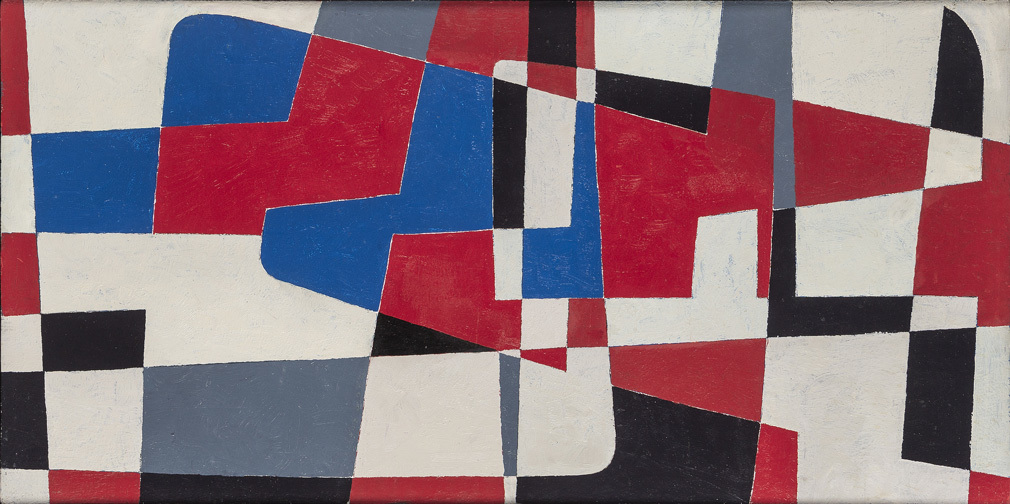Four pioneers of the avant garde and art concret

Concrete art was an art movement with a strong emphasis on geometrical abstraction. The term was first formulated by Theo van Doesburg (1883 - 1931) and was then used by him in 1930 to define the difference between his vision of art and that of other abstract artists of the time. The Swedish artist Otto G. Carlsund (1897 – 1948) among others joined the movement and In May 1930 they published a single issue of their own French-language magazine, Revue Art Concret, which featured a joint manifesto, positioning them as the more radical group of abstractionists.
The Swedish artists Bengt Orup, Olle Bonniér, Harry Booström and Bertil Öhlund were all pioneers and followers of the avant garde and were active in the field of art concret.
Bengt Orup (1916-1996) was educated at the art school of Otte Sköld and at Academie Grande Chaumièr and Colarossi in Paris. Orup’s works span from monumental scultures to the popular series of ”Strikt” designed glassware.
Olle Bonniér’s (1925-2016) work is characterized by the non-figurative. Music was an important part of Bonniér’s life and it has been said that he worked on his paintings like a musician, translating the rythm and beat into colors.
Harry Booström (1917-1996) studied for the Swedish painter Isaac Grünewald. He found his inspiration for painting in nature. Booström’s work is characterized by dynamic compositions with warm and cold colors generating a feeling of rythm, energy and movement.
Bertil Öhlund (1923-2003) was, as Bengt Orup, a student of Otte Sköld’s. He spent many years of his life travelling and working in Europe. Around the year 1950 he studied for André Lhote and was introduced to geometric art. André Lhote played an important part in Öhlund’s development as an artist and Öhlund works are nonfigurative and abtract in strong, bright hues of color.

























